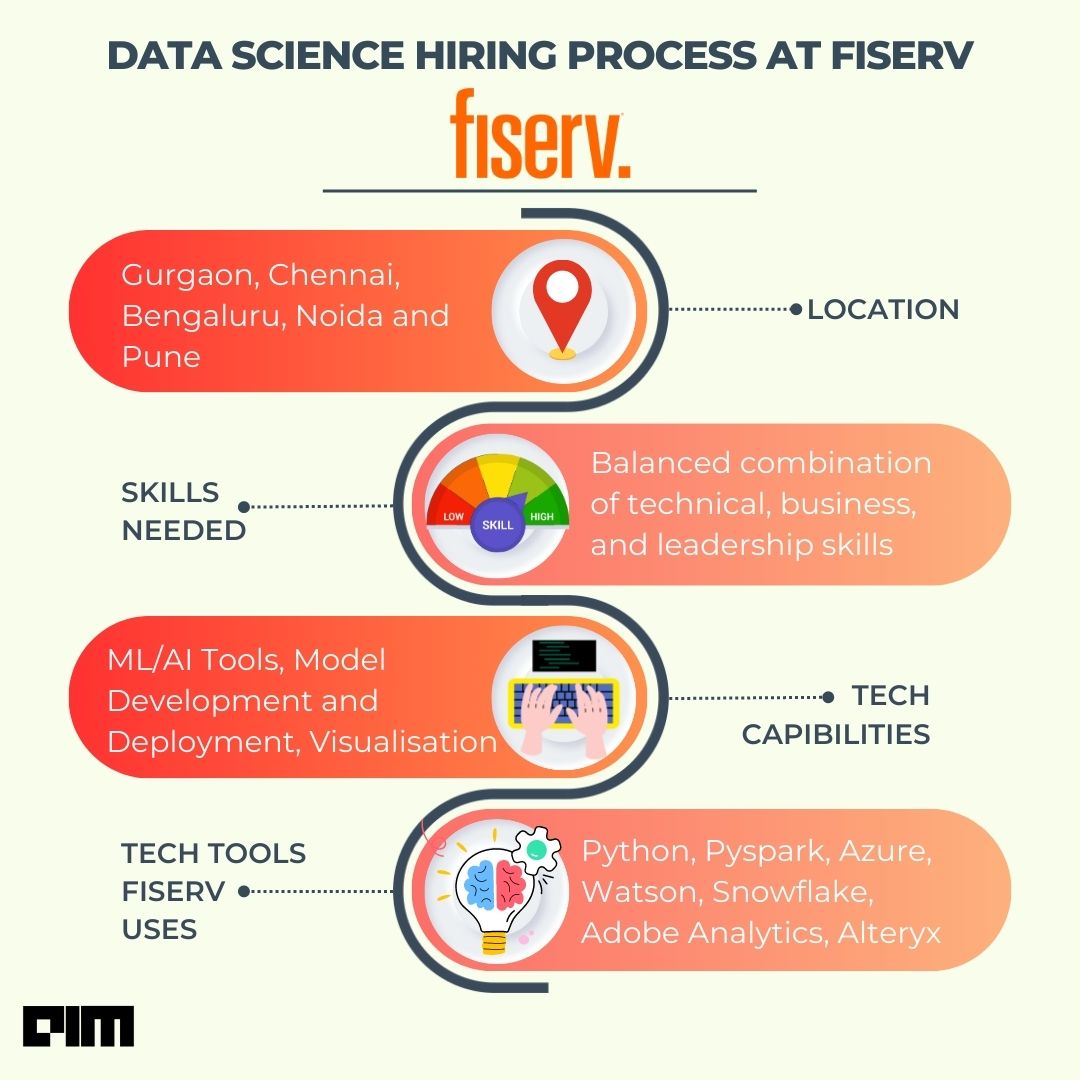Headquartered in Brookfield, Wisconsin, Fiserv is a global leader in payments and financial technology, with operations across 100 countries. Aspiring to move money and information in a way that moves the world, Fiserv helps its clients achieve best-in-class results through a commitment to innovation and excellence. Boasting a global workforce exceeding 41,000 professionals, Fiserv’s data science team plays a pivotal role in supporting various business domains, driving innovation, and cultivating engineering excellence to enhance client experiences.
Founded 39 years ago through the merger of First Data Processing and Sunshine State Systems, Fiserv has experienced rapid growth by strategically acquiring prominent entities such as CheckFree Corporation, M-Com, CashEdge, and PCLender. Again in 2019, Fiserv underwent a transformative merger with First Data, resulting in the formation of a globally recognised leader in payment solutions and financial technology, facilitating unparalleled capabilities to deliver exceptional value to financial institutions, corporate clients, small enterprises, and consumers alike.
Analytics India Magazine got in touch with Manisha Banthia, vice president, data and analytics – global services, Fiserv, to understand the importance of AI and analytics for the company and how they hire the finest tech talents.

Inside the Data Science Team of Fiserv
Being a major player in the fintech industry, the 75-member strong data science team of Fiserv tackles various complex challenges in the fields of banking, cards, payments, digital solutions, and merchant acquisition. Besides creating embedded analytics solutions for financial institutions (FIs) to aid their decision-making processes, they offer advisory services throughout the lifecycle of FIs and merchants, covering areas such as acquisition, growth, cross-selling, and retention. The team also focuses on building solutions to optimise internal processes and operations across different businesses.
For a major US retailer, they leveraged ML to identify prepaid cardholders who would benefit from targeted marketing strategies, resulting in increased engagement and reduced attrition. In another initiative, Fiserv aimed to expand its merchant user base for cash advance loans and achieved this by developing a risk model and an AI algorithm that enabled the sales team to target the right merchants, leading to portfolio growth, reduced marketing expenses, and cost optimisation.
Furthermore, the data science team developed an advanced ML-based solution to address fraud detection and prevention for financial institutions, replacing rule-based engines. “Our data science team follows a pod structure consisting of data scientists, domain experts, ML engineers, visualisation experts, and data engineers who constantly add value to our organisation,” said Banthia.
Data scientists apply advanced techniques and provide recommendations. Domain experts offer business context, translate problems, and validate results. ML engineers deploy ML models for performance and reliability. Visualisation experts represent data insights visually. Last but not least, data engineers collect, process, and maintain data quality.
The team actively works with Python, Pyspark, Azure, Watson, Snowflake, Adobe Analytics, and Alteryx.
Interview Process
The interview process consists of a thorough examination by both technical and managerial authorities. Candidates with strong programming skills, statistical knowledge, and problem-solving capabilities, evaluated through case studies and in-depth domain knowledge assessment, are ideal. Following it is an HR assessment to check interpersonal skills and the culture fit.
“A successful data scientist should prioritise a client-centric approach, seeking feedback, adapting to specific needs, and aligning analytical solutions with objectives,” said Banthia.
Technical skills like solving unstructured problems, exploring AI and ML techniques, conceptualising solutions, and simplifying findings for stakeholders are valued. Fiserv also looks for strong leadership, business acumen, and functional expertise in executive hires. When interviewing, prospective candidates should showcase a balanced combination of technical, business, and leadership skills. They should effectively communicate their proficiency without excessive technical jargon and demonstrate the ability to lead teams and collaborate effectively.
Work Culture
Certified by Great Place To Work® in 2023, Fiserv aims to foster a fast-paced and dynamic work environment. Adaptability and the ability to iterate quickly and respond to market needs are highly valued. The company prioritises up-skilling employees to help them excel in their roles and adapt to new technologies and client needs.

Besides providing an inclusive culture and professional growth opportunities, the fintech giant offers learning programs, wellness plans, and engagement initiatives. “We are committed to being an equal opportunity employer with an inclusive workplace culture and clear communication through an open office concept,” she concluded.
Check out their careers page now.
Read more: Data Science Hiring Process at MediBuddy





























